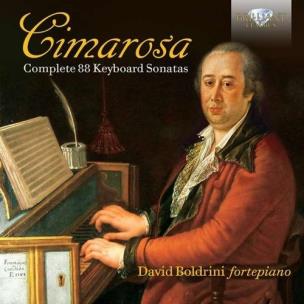- Regulamin
- Koszty dostawy
- Kontakt
- Dziś w ofercie 236 481 produktów
KSIĄŻKI
- Albumy
- Beletrystyka
- Biografie
- Dla dzieci i młodzieży
- Edukacja
- Ekonomia i biznes
- Ezoteryka
- Historia
- Informatyka
- Kalendarze
- Komiksy
- Kryminał i sensacja
- Kultura i sztuka
- Literatura faktu
- Literatura kobieca
- Literatura piękna
- Medycyna
- Nauka języków obcych
- Nauki humanistyczne
- Nauki przyrodnicze
- Nauki ścisłe
- Podręczniki
- Poradniki
- Prawo i administracja
- Przewodniki i podróże
- Psychologia
- Religia
- Sport
- Technika
- Zdrowie i uroda
ZABAWKI
- Artykuły dla niemowląt
- Bączki
- Bujaki i skoczki
- Ciągnij / pchaj
- Dla niemowlaka
- Grzechotki i gryzaki
- Karuzele i pozytywki
- Maty i centra zabaw
- Projektory i lampki
- Sortery i piramidki
- Zabawki
- Edukacyjne i kreatywne
- Figurki
- Klocki
- Lalki
- Pojazdy
- Pluszaki i maskotki
- Sport i rekreacja
- Zabawa w dom
- Zabawki drewniane
- Puzzle
- Do 200 elementów
- 201-500 elementów
- 501-1000 elementów
- Ponad 1000 elementów
- Puzzle 3D
ART. PAP
- Artykuły biurowe
- Artykuły piśmiennicze
- Bloczki i kartki samoprzylepne
- Dziurkacze
- Kalkulatory
- Nożyczki i nożyki
- Skoroszyty
- Teczki
- Wizytowniki
- Zszywacze
- Artykuły szkolne
- Akcesoria szkolne
- Modelowanie
- Notatniki i zeszyty
- Piórniki
- Plecaki i torby
- Pojemniki na śniadanie
- Pomoce naukowe
- Przybory matematyczne
- Przybory rysunkowe
- Upominki i gadżety
- Akcesoria do książek
- Artykuły balowe
- Breloki i zawieszki
- Drobiazgi, różności
- Kubki
- Oferta Świąteczna
- Papeteria, kartki i naklejki
- Skarpetki Many Mornings
- Upominki
GRY
MULTIMEDIA
- Audiobooki
- Beletrystyka
- Biografie i wspomnienia
- Dla dzieci i młodzieży
- Fantastyka
- Filozofia i religia
- Historia
- Literatura faktu i reportaż
- Poradniki
- Sensacja i kryminał
- Filmy DVD/BD
- Animowane
- Biograficzne
- Fantasy
- Horrory
- Komedie
- Romanse
- Science Fiction
- Sensacyjne / kino akcji
- Thrillery
- Muzyka CD
- Alternatywna
- Blues
- Dla dzieci
- Jazz
- Klasyczna
- Piosenka aktorska i poetycka
- Pop
- Rock
- Świąteczna i kolędy
- Akcesoria GSM
- Głośniki
- Kable i adaptery
- Klawiatury
- Myszy
- Słuchawki
PROMOCJE
ZDROWIE
LEGO

Cimarosa: Complete 88 Keyboard Sonatas
Wydawca:
Brilliant Classics
EAN:
5028421950273
oprawa:
Pudełko CD
czas trwania:
2:28:15
format:
12.3x13.9
język:
włoski, angielski
rok wydania:
2015
(0) Sprawdź recenzje
Opis produktu
Zasady bezpieczeństwa
The 88 sonatas of Domenico Cimarosa (1749-1801) have been recorded complete before but never on a fortepiano which reveals their true Italianate colour as well as their unfailing charm. The Bachian figurations of the quick movements trip so much more easily from the lighter touch of the fortepiano than its heavier descendant, and a fine pianist can make much more from the Scarlattian contrasts of breathless toccata and lyric style which are Cimarosa’s principal modes of expression here.
As with Scarlatti’s individual sonatas, these short character pieces gather naturally by key, tempo and affekt into groups; not Scarlattian pairs but trios, thus forming mini-sonatas in the Classical form if not style. About 30 of them have strong late-Baroque inspiration, full of rhythmic and harmonic inventiveness, but the biggest group is formed by at least 40 sonatas that call to mind an opera sinfonia in a typical Italian theatre, with melodramatic moments, cavatinas and cabalettas, love duets alongside comic scenes, all deriving from the effervescent Neapolitan tradition. There are also homages from within the sacred music of that tradition with elaborate counterpoint and formal fantasy, and still other sonatas that proceed in a more reflective, late-Classical style, conceived in a tripartite A-B-A form.
David Boldrini has recorded the sonatas on two instruments: a copy of an Anton Walter model, and an original Schantz fortepiano, both carefully maintained at the Accademia Bartolomeo Cristofori in Florence, which collects and curates fortepianos and the music written for them. Boldrini himself studied in Florence and now works there as a pianist, conductor and repetiteur.
Domenico Cimarosa (1749-1801) was one of the best known composers of the Neapolitan School. He held several important musical posts throughout Europe (St. Petersburg, the Emperor Leopold in Vienna) as a highly successful composer of operas. His best known work is the opera Il Matrimonio Segreto, which brought him universal fame.
Cimarosa’s output for the keyboard consists if a great number of sonatas, short, one-movement works, charmingly melodious, witty and entertaining.
Pianist David Boldrini plays an early fortepiano, achieving a wide range of expression, from sweet murmuring to fierce brilliance.
CENA:
25,35
zł
Cena detaliczna:
29,90 zł
15%
rabatu
Najniższa cena z ostatnich 30 dni: 25,41 zł
Produkt niedostępny
Uwaga!!!
Ten produkt jest zapowiedzią. Realizacja Twojego zamówienia ulegnie przez to wydłużeniu do czasu premiery tej pozycji. Czy chcesz dodać ten produkt do koszyka?


Wybierz wariant produktu
